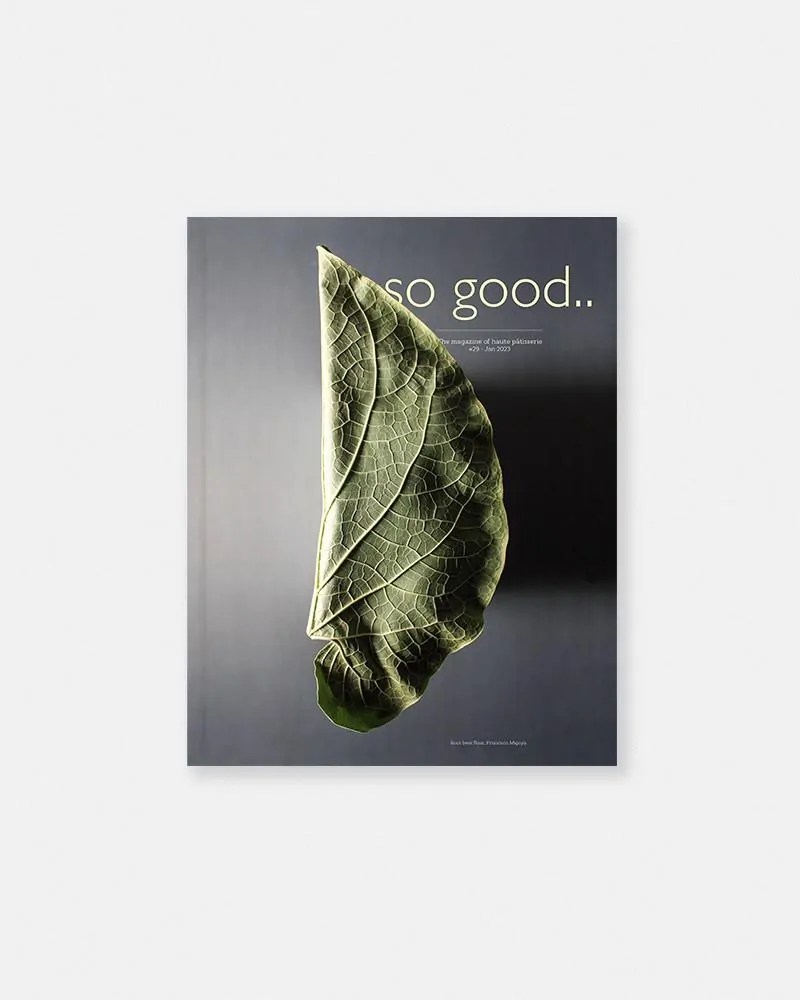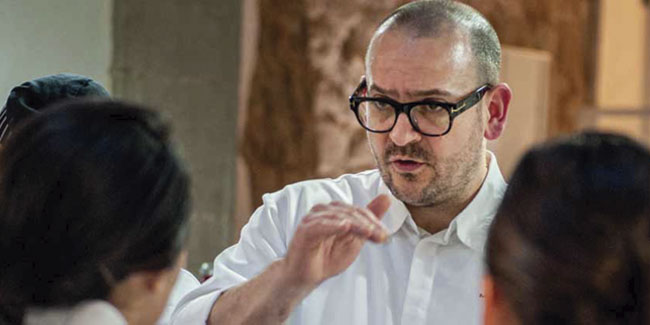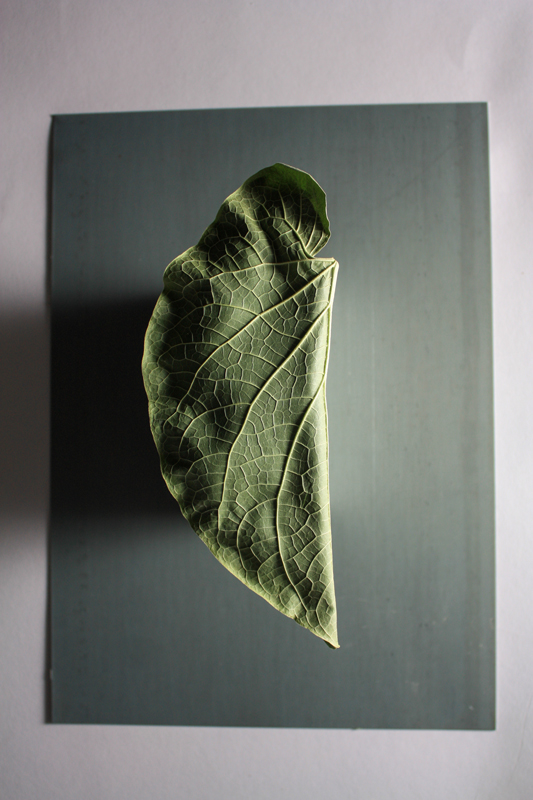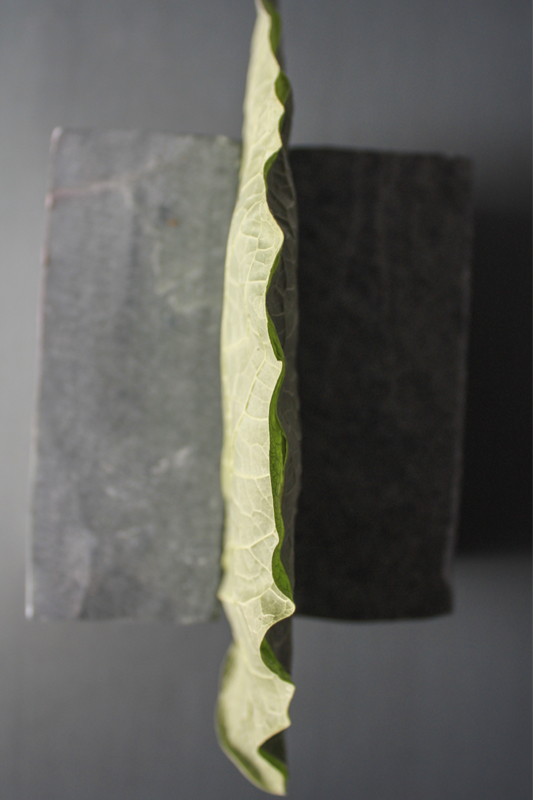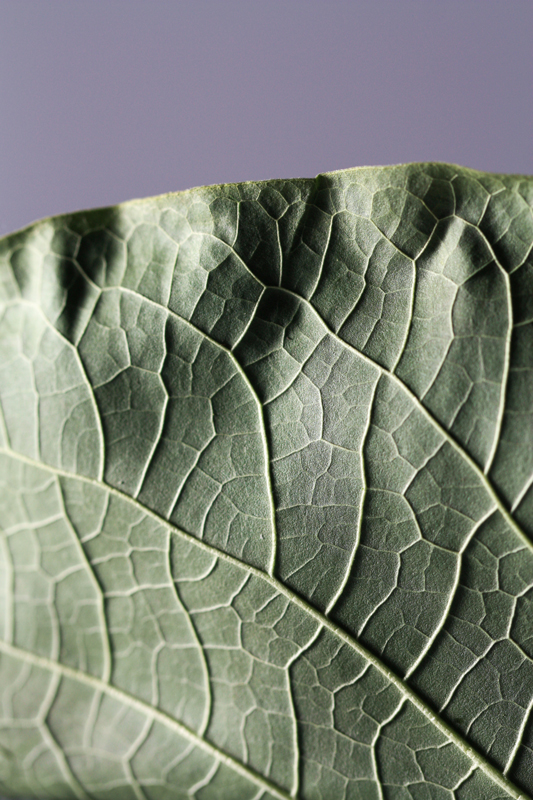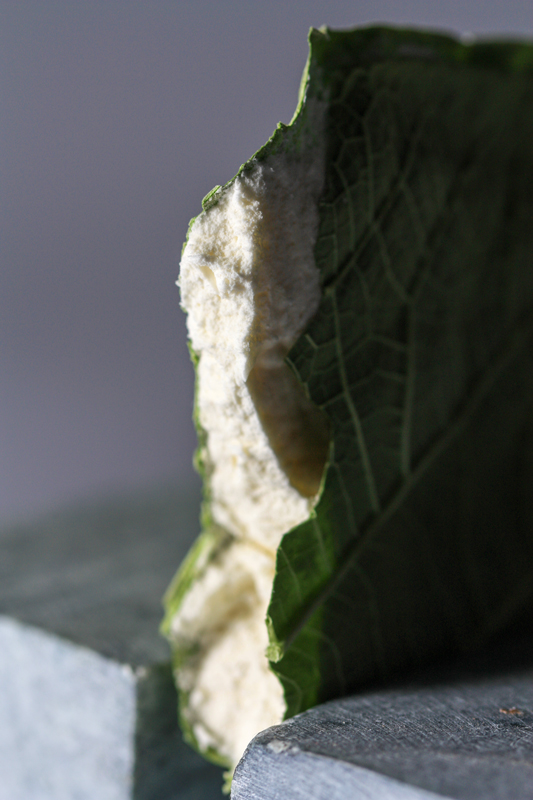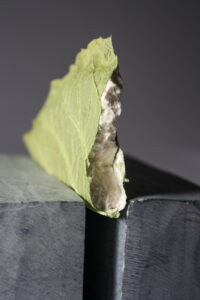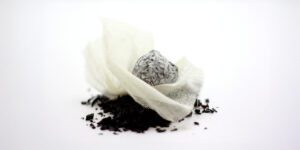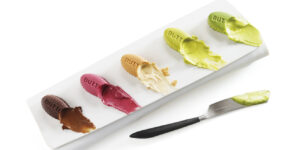Categories Pastry Chef Articles
Francisco Migoya: ‘Nothing makes us more creative and resourceful as scarcity’
We cannot fail to invite Francisco Migoya, from time to time, to participate in so good.. magazine 29. His talent, wit and knowledge are for so good.. magazine the best guarantee of a work philosophy that is always original and meaningful – as it is demonstrated again this time. Not only does he offer us an exclusive creation of great beauty, which also responds perfectly to his vision of sustainability, but also exposes, in a clear-cut manner, some ideas so that we understand the gravity of the situation both environmentally and even socially. ‘Our fruit might be grown with environmentally sound methods, but if the people who harvest it are working for slave wages, then it is not sustainable’, he declares. This Mexican chef based in Seattle (USA), head chef of Modernist Cuisine, shares with us in this interview his philosophy about what pastry should be today, which he executes through a system he has baptized as ‘Simplissimus’, which he explains as follows: ‘It consists of a self-imposed rule in which I can use no more than three ingredients in a plated dessert. Not three components. Three ingredients (salt, sugar and water are not considered part of the threeingredient total equation).’
And as an unbeatable example, Migoya brings us his beautiful Hoja Santa whose sap is composed of only two ingredients – heavy cream and vanilla, which along with the leaf itself add up to the three allowed according to its regulations. A creation inspired by the classic and extremely simple but delicious root beer float, that ball of vanilla ice cream floating in a cold root beer.
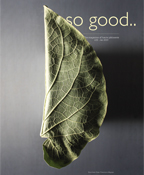
What is sustainability in gastronomy and, especially, in pastry?
Sustainability has the same meaning in every aspect of life, including gastronomy. Does the thing I am using/eating/ making have a negative, neutral, or positive impact? Does it deplete resources without replacing them in any way? If the answer is yes, it is unsustainable. In our industry, there are ingredients we use that might be unsustainable. It is important to understand that sustainability is not just environmental. It is social too. Our fruit might be grown with environmentally sound methods, but if the people who harvest it are working for slave wages, then it is not sustainable. In the same way, if people get paid a fair and living wage, but the produce they harvest is flown in from halfway across the globe, then it is not sustainable because the fossil fuels that were used to ship it to you are non-renewable and pollute the air we breathe. A chef that cares about sustainability has a mindfulness towards all aspects of sustainability, not just the ones that are most convenient.
‘Our fruit might be grown with environmentally sound methods, but if the people who harvest it are working for slave wages, then it is not sustainable’
Why is it necessary for pastry chefs to become aware of practicing sustainable pastry?
Without it, our planet will deteriorate more and more and faster. While we may think that the efforts of one person, or one restaurant (or hotel) won’t change the course of our warming planet, if everyone or most people work towards a complete embrace of sustainability as a philosophy of work and life, it can make a change that we desperately need.
How can sustainable pastry be practiced? Can you give some examples of practices that you have incorporated into your daily work?
By using less. Consuming less. Making more with less. We are spoiled with and abundance of products and services and have gotten used to it, as if it were normal. We want to put twenty components on the plate even if they don’t make any sense, just so we can show off how talented and skilled we are. Or simply because we can. It is reasonable to think that if you use less things, you will have less of an impact. I have developed a philosophy of pastry that I have named ‘Simplissimus’. It consists of a self-imposed rule in which I can use no more than three ingredients in a plated dessert. Not three components. Three ingredients (salt, sugar and water are not considered part of the three-ingredient total equation). This philosophy is no simple, as the name implies. It takes a lot of thought, creativity, and know-how to make something delicious and beautiful with only three ingredients. But I think that this is the most enjoyable part of being a pastry chef: the creativity, and nothing makes us more creative and resourceful as scarcity. You give a cook ten pots to use for their prep work and they will use all ten. Give them one and they will figure out how to make it work.
‘We are spoiled with and abundance of products and services and have gotten used to it, as if it were normal’
What can the sector do, pastry chefs, suppliers, schools, to contribute to sustainability?
The suppliers can look at alternatives to packaging that are not single use plastic. Plastic is an enormous problem. It is a cheap and convenient product that has wreaked havoc on the environment, but also, there is so much of it that now we have microplastics going into our food system and into our bodies. On our end, working in kitchens, we can start to think deeply about the provenance of our ingredients, how the staff is paid, how long they have to work, how they are treated, how much plastic we use mindlessly (gloves, piping bags, plastic wrap). Regarding schools, sustainability should be taught and practiced from day 1, so the students can learn to embrace it and understand it from the start.
